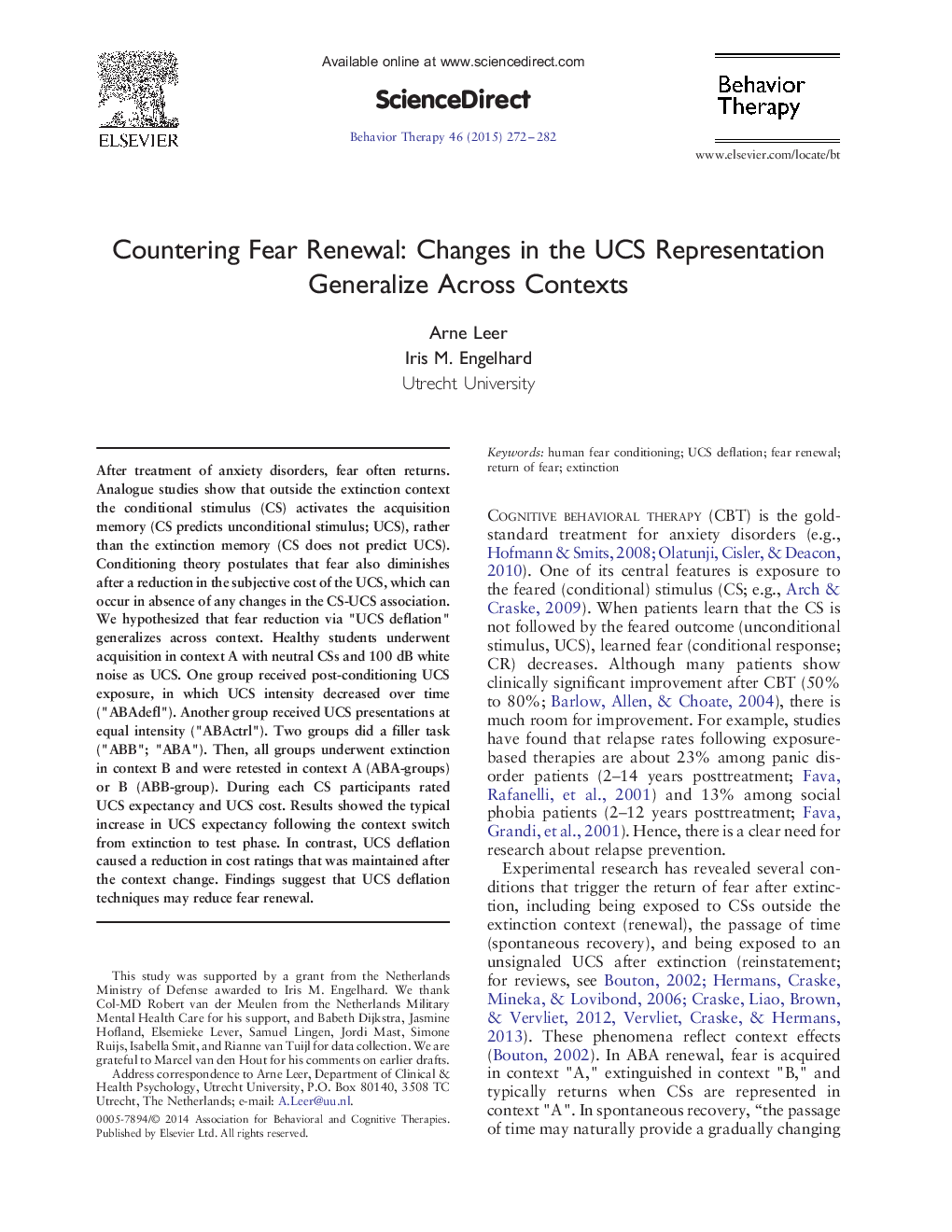| کد مقاله | کد نشریه | سال انتشار | مقاله انگلیسی | نسخه تمام متن |
|---|---|---|---|---|
| 901353 | 915862 | 2015 | 11 صفحه PDF | دانلود رایگان |

• Exposure to the UCS at decreasing intensity changed the mental UCS representation
• The intervention caused a decrease in cost estimates that generalized across contexts
• Findings suggest that UCS deflation techniques may reduce fear renewal
After treatment of anxiety disorders, fear often returns. Analogue studies show that outside the extinction context the conditional stimulus (CS) activates the acquisition memory (CS predicts unconditional stimulus; UCS), rather than the extinction memory (CS does not predict UCS). Conditioning theory postulates that fear also diminishes after a reduction in the subjective cost of the UCS, which can occur in absence of any changes in the CS-UCS association. We hypothesized that fear reduction via "UCS deflation" generalizes across context. Healthy students underwent acquisition in context A with neutral CSs and 100 dB white noise as UCS. One group received post-conditioning UCS exposure, in which UCS intensity decreased over time ("ABAdefl"). Another group received UCS presentations at equal intensity ("ABActrl"). Two groups did a filler task ("ABB"; "ABA"). Then, all groups underwent extinction in context B and were retested in context A (ABA-groups) or B (ABB-group). During each CS participants rated UCS expectancy and UCS cost. Results showed the typical increase in UCS expectancy following the context switch from extinction to test phase. In contrast, UCS deflation caused a reduction in cost ratings that was maintained after the context change. Findings suggest that UCS deflation techniques may reduce fear renewal.
Journal: Behavior Therapy - Volume 46, Issue 2, March 2015, Pages 272–282